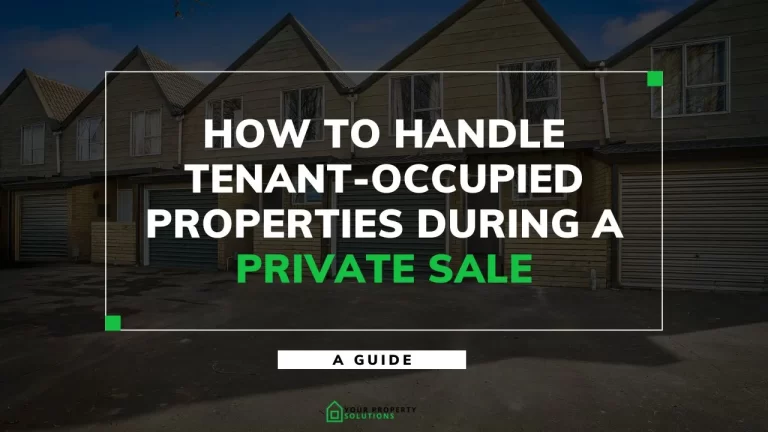
Selling a property with tenants can be tricky, but it doesn’t have to be. If you’re considering selling privately while tenants occupy your property, this guide will help you manage the process smoothly.
Selling with tenants in place can add complexity. Whether it’s maintaining a harmonious relationship with your tenants or navigating the legal requirements, landlords must balance the sale process with the needs of their tenants. In many cases, having tenants can even be seen as an asset, particularly for investors. However, it requires careful management to avoid misunderstandings or disruptions.
When selling a tenanted property, your legal obligations extend to both the buyer and the tenant.
Here are key factors:

Transparent and early communication with tenants is crucial when selling a tenant-occupied property. Landlords should structure conversations to reduce tenant anxiety or resistance by providing clear information on the sales process and expected timelines.
Being open and clear with your tenants will ease their worries and help keep the process smooth for everyone.
Private sales typically don’t involve open homes. Instead, viewings are arranged by appointment. Schedule viewings around your tenants’ availability or, if necessary, offer virtual tours to minimize disruption. This keeps your tenants happy and the property presentable.
Tenants might worry about new owners or changes to their lease. Be proactive in addressing these concerns. Offering incentives such as rent reductions for their cooperation or flexibility with lease terms can help keep things moving smoothly.
Sometimes the easiest buyer is the one already living there. Consider offering your tenant the chance to buy the property first before listing it. This can simplify the sale and avoid complications with new buyers.
Buyers, particularly investors, will want information about the tenants. Be prepared to answer:

Your approach will depend on the type of buyer:
Selling a tenant-occupied property comes with legal considerations. Ensure you follow best practices by:
Successfully selling a tenant-occupied property requires a thoughtful approach. Clear communication, legal compliance, and maintaining positive relationships with your tenants are key to ensuring a smooth transition for both tenants and buyers.
If you’re looking to sell a tenant-occupied property or any commercial property, we’re here to help. At Your Property Solutions, we specialize in private property sales and can guide you through the process to make it as easy and stress-free as possible.
Until Next Time
Billy & Slade 💚

